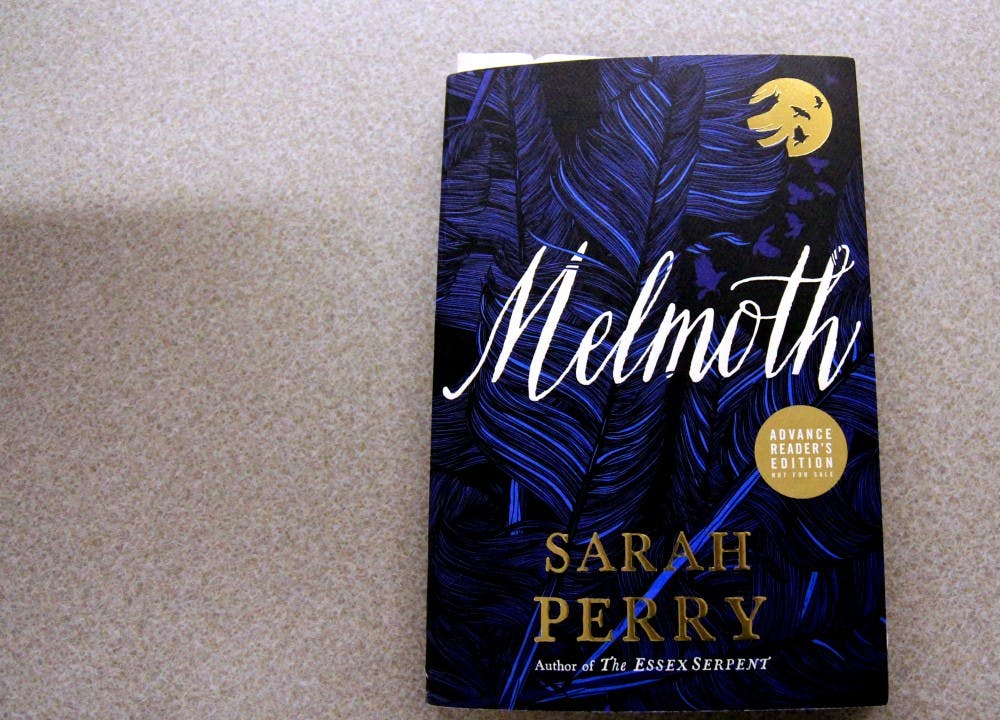Looking for a spooky story this Halloween? Bestselling English author Sarah Perry’s new novel, “Melmoth,” is part epistolary novel, part ghost story, all gothic.
Based on the legend of the lonely, haunting ghost, Melmoth the Wanderer, the story follows Englishwoman Helen Franklin in Prague, Czech Republic — literally, follows her.
Helen is constantly aware of eyes on her back, gazing from rooftop gargoyles and alleyways. She thinks little of this feeling until her friend Karel Pražan reveals to her mysterious proof of Melmoth’s deadly existence.
The rest of the novel follows Helen as she uncovers evidence of Melmoth’s centuries-old hauntings, found in 17th century letters, accounts from both World Wars, diaries and more. Through them, she learns of the extreme loneliness Melmoth experiences wandering the Earth and how she tries to pull those with guilty consciences into death, out of boredom and loneliness.
For the story’s suspense to work, Melmoth has to be ominous, mysterious — a boogeyman. The uneasy presence of Melmoth is developed not only in her character, but within the narrative style.
The narrator speaks in the present-tense, from a first-person perspective, often addressing the reader as a person standing at their side. The narrator frequently asks the reader if they notice how uncomfortable or ashamed Helen appears. This strategy, of forcing the reader to acknowledge their intense focus on Helen, makes the reader uncomfortable — we are voyeurs of Helen’s public acts and her private thoughts. As Helen shivers at the feeling of eyes on her back, we shiver too, knowing they’re our eyes.
Melmoth is also an effective ghost character — terminally lonely and contemptuous of it, always searching for other cheerless, guilty loners to smite with death. She’s frightening and thrilling. But these are rare moments. The various accounts of her presence throughout time — ranging from the 20th century Philippines to 1637 England — helps define the ghost’s goals and helps the reader anticipate the harrowing trouble coming Helen’s way.
Though sometimes Melmoth is a bit too cutesy and dramatic to be taken seriously, the story is unsettling, often portraying its creepiness through setting and atmosphere. The sublime details, horror, isolation and ghostliness make “Melmoth” a modern gothic tale.
That being said, the novel is an enjoyable ghost story, though not much more. The ghost takes absolute precedence over all other characters, and though Helen and some supporting characters are well-formed early on, they sort of stall out and don’t develop. The novel consists of revealing the past of the protagonist and others through epistolary chapters, leaving the present-tense action of the story small and relatively inconsequential in terms of significance and even plot.
The stories contained within the epistolary chapters, however, are unsettling. Perry’s writing is commendable for its disturbing and simultaneously ethereal qualities across a spread of different voices.
One story revolves around a young boy’s jealousy of a Jewish neighbor who owns a radio under the Nazi regime. Another presents an immobile, terminally agonized woman who suffers from a jealous lover’s immobilizing acid attack:
“‘Aking kaibigan,’ said Rosa, and as she said it she began to shake, not with pain or with effort, but because she had begun to cry. ‘Aking kaibigan: hayaan mo akong mamatay.’ My friend, my friend. Let me die.”
Though the horror and terror in the story is effective and unquestionably, masterfully gothic, the novel leaves something to be desired in terms of character development and even plot. The ending — entertaining as it is — grounds the novel’s teeth into affirmation that it is, indeed a ghost story, with attempts at morality that ultimately are too pointed or too underdeveloped enough to constitute much discussion.
But if you’re looking for some modern gothic, something chilling, something cruel and terrifying, Perry’s novel is the next must-read. It’s short, beautiful and haunting.




